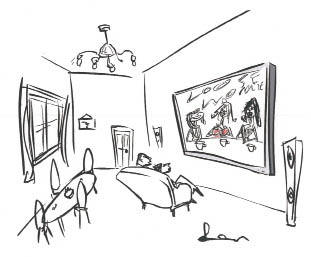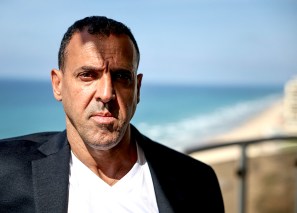The drugs don’t work sung the Verve on one of their best songs, and I’m feeling the same myself at the moment.
The drugs don’t work sung the Verve on one of their best songs, and I’m feeling the same myself at the moment. The stash in my bedside cabinet aren’t drugs of the recreational variety but anti-depressants that I have been taking, on and off, but mostly on, for 30 years now.
Depression for me always starts with acute anxiety and sudden rushes of panic. Indeed, I was first prescribed the pills, and sent to a day-care psychiatric hospital for several weeks, when I became so stressed out by my job on the Evening Standard in the early Eighties that I ran away from both work and home for several days, pitching up in the Devon resort of Dawlish, where I sat in a deckchair, drank a lot of beer, read thrillers and between chapters watched elderly men and women playing bowls. My mind, after months of tension, became a blessed blank.
Every so often depression returns. The first signs are always the same. My brain starts churning like a washing machine that won’t switch off, and every morning I wake up in a panic at dawn and can’t get back to sleep again. By the evening I usually feel better but the fear returns each morning, gradually giving way to a grey, listless fatigue. The smallest task becomes a huge labour and all I want to do is read P.G. Wodehouse, drink cups of tea and sleep. I used to self-medicate with booze, but have found that the bad patches last less long without it, and don’t go so deep. One of the worst things about these dark interludes in an otherwise contented life is that I can’t even enjoy music any more. It doesn’t matter if it’s Mozart, Duke Ellington or the Stones — they all just sound like noise.
I sometimes wonder whether my depressive spells began with a terrible acid trip I experienced as a student. I was never a great recreational drug user, and always preferred beer and whisky to marijuana, but trying LSD felt like something I really ought to do. How could I get the most out of the psychedelic music of the Grateful Dead and early Pink Floyd if I didn’t? Wasn’t part of life’s journey and purpose to expand your mind?
This almost missionary view of LSD was proclaimed by the likes of Timothy Leary with his famous invitation to ‘tune in, turn on and drop out’ and Owsley Stanley, who died last week, who manufactured LSD on an industrial scale in San Francisco in the Sixties, offering chemical fuel to the Flower Power generation. He was also the brilliant sound engineer for the Grateful Dead, and when he was busted he heroically insisted that the 350,000 acid tabs the police confiscated were for his personal use.
Like Leary, Owsley regarded LSD as a force for good. ‘I wound up doing time for something I should have been rewarded for,’ he said. ‘What I did was a community service, the way I look at it. Was I a criminal? No, I was a good member of society. Only my society and the one making the laws are different.’
By the time I took acid in the mid-Seventies, the hippie dream had long since faded and punk rock was just around the corner, whose drug of choice was amphetamine sulphate. But I was fascinated by LSD, and, as someone who rather ridiculously thought of myself as a hippie, would have felt a craven wimp if I hadn’t tried it. Nevertheless, in the back of my mind was the thought of Syd Barrett, the founding genius of Pink Floyd, who took too many trips and never quite came back.
In fact, the first trip was delightful. A friend and I took it in a room at the top of a tower in Balliol where Gerard Manley Hopkins once studied. Music sounded terrific, the walls seemed to turn into fabulous waterfalls and when we went out into the quad at midnight the gravel on the paths seemed to me to be beautifully carved ivory letters which could be arranged into poems.
The second time was vile. I was convinced I had died and gone to hell and that my fellow tripper was Mephistopheles (I’d recently been studying Dr Faustus). Hell, I concluded as the bum trip went on and on, was a constant awareness of what an eternity of torment actually meant. I have never been so scared in my life, completely convinced that I was damned for ever. And for years afterwards, memories of that dreadful night would suddenly return unbidden, and make me tremble and sweat.
Perhaps it is fanciful to suggest that one bad trip sparked off the intermittent bouts of depression that I have experienced ever since. But I wouldn’t rule it out, and it is an experience I still regret. Just say no.
Charles Spencer is theatre critic of the Daily Telegraph.






Comments